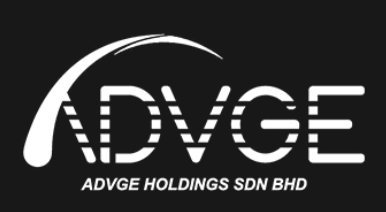Digital Workforce
The heart of a intelligent enterprise is its people
There is a shift that we see in the world of culture and economics that can be noted by the appearance of intelligent machines that are driving this change and modifying the way we work in today’s landscape.
Our potential future workforce can already be seen today, with them being more agile and productive and this is due in part to the rise of automation and A.I. that is being deployed in various departments. Statistics wise, 62% of the working force have agreed that the implementation of A.I. will lead to positive impacts and growth in their jobs while 67% agree that in this ever-changing landscape, it is just as equally important in developing skills for operating intelligent machines.
The appearance and growth of new technology has seen apparent benefits. The availability of new technology has delivered substantial boosts to worker productivity, with noticeable improvements in forming new, innovative workforces, and unlocking growth possibilities once unlikely. The bottom line? This will lead to the creation of experiences that are more personalized and relevant to the worker alongside operations that will dramatically improve our lives.
However, there is an issue:
Out of the sheer number of industries out in the wild, only a mere 3% of these industries/companies have any future plan to increase their skill investments over the course of the next 3 years..
To not only survive, but thrive in this digital age, these industries and companies have must be forced to re – think and re-structure their talent strategies and to drive transformation at a speed and scale that will unlock new, potentially unknown, ways for human and machine to co-operate.
why it matters?
New technologies are ramping up productivity and efficiency in every sector, yet we don’t equip our workforce with the right digital tools to capitalized on it.
By investing in the right talent at the right time, by combining a strengthened talent pipeline, intelligent technologies, and an agile culture and leadership, companies can expect:
USD 3.6 Trillion Global profit Expansion in the next 3 years, this is equivalent to USD1.1 Billion per company in the Forbes 500.
28.5% Revenue Boost by 2023, this is equivalent to USD5.62 Billion for the average Forbes 500 Company
7.5% employment increase, this is equivalent to additional 3,750 new jobs for the average Forbes 500 Company
How we do it?
Our team are experts in the following functional and consultancy area:
SAP Implementation Services (PM, MM, FICO/JVA Module, Ababper)
SAP Technical (Security/Authorization Consultant and Analyst)
Media Reporting Intelligence
Data Management (Consultant, Architect, Analyst)
SQL Database Admin (Consultant, Architect, Analyst, Developer, Administrator)
Microsoft (Consultant, Architect, Analyst, Developer)
Cloud (Consultant, Architect, Analyst, Developer, Administrator)
Microsoft (ALM Consultant, ALM Architect, ALM Analyst, ALM Developer)
Infrastructure (Consultant, Architect, Analyst, Developer)
DBA Oracle (Consultant, Analyst, Developer, Administrator)
E-Learning (LMS Consultant, LMS Analyst, LMS Developer, LMS Administrator)
OS (Linux/Unix System Administrator)
Operation Technology (Consultant, Architect, Analyst)
Microsoft Sharepoint (Consultant, Architect, Analyst)
Nintex (Consultant, Architect, Analyst, Developer)
Microsoft Wintel (Consultant, Analyst, Developer, Administrator)
Telco (UC Architect and UC Analyst)


